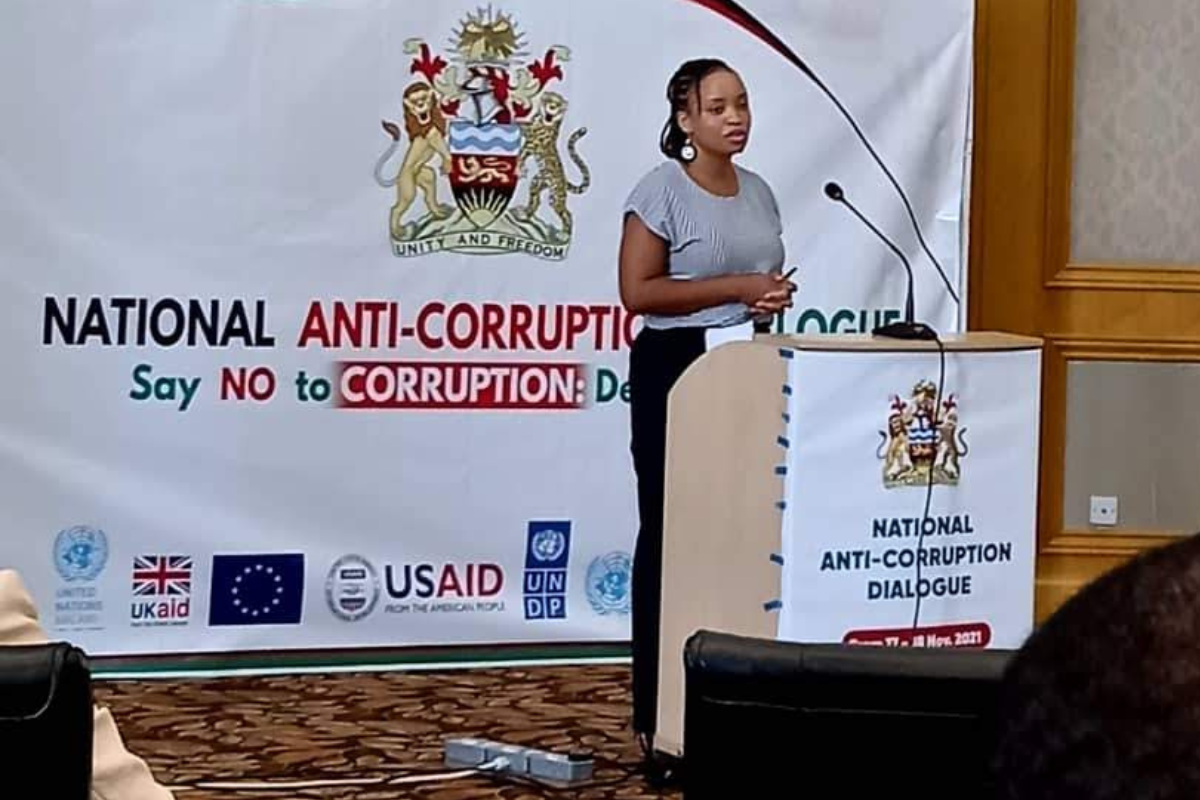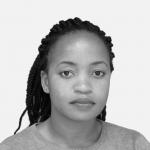More than Gantt charts: fighting financial crime as a Programme Manager

Misozi Samuti Chimbe, Programme Manager for Southern and East Africa at the Basel Institute’s International Centre for Asset Recovery (ICAR), reflects on how her passion for public service has led her to pursue the bigger mission of protecting public resources, and how her work has become a deeply personal endeavour. This article is part of a series on careers in fighting financial crime and opportunities to learn and study with the Basel Institute.
“Financial crime has real, tangible effects on our everyday lives. And those of us with strong management skills can play a role in countering it.”
Like many young people, I had various ideas about what a fulfilling and impactful career could look like. My original goal was to follow in my father’s footsteps and become a biomedical practitioner. However, life and my faith have led me to believe that God had other plans. I ended up studying and excelling in accounting, a path that would later open unexpected and rewarding opportunities.
An accountant with a passion for public service
I began my professional journey as an intern at the Malawi Revenue Authority. From there, I moved on to TotalEnergies, gaining valuable private-sector experience as an accountant.
Although a career in the private sector looked promising, my passion for public service continued to grow. This led me to join a Canadian non-profit organisation working to build healthy communities in Africa. Eventually, I transitioned into financial administration when I joined the Basel Institute’s International Centre for Asset Recovery (ICAR) in 2018 in support of the UK-funded Tackling Serious and Organised Corruption (TSOC) programme in Malawi.
It was through this transition that I discovered the world of countering financial crime and asset recovery. I became Programme Manager for Malawi not long after joining the Institute. As the Basel Institute strengthened its regional hubs and its interactions between different teams and programmes, my role later expanded to that of Programme Manager for Southern and East Africa as a whole.
Combining my background in financial management and compliance with programme management allowed me to connect technical skills to the bigger mission of protecting public resources. This journey has not only shaped my career but also given me a strong sense of direction and purpose.
Having impact is fulfilling
Financial crime can seem abstract and distant, but through my work, I have realised it has profound consequences and is deeply personal. It is not merely about money lost in complex systems. It is about hospitals that never get built, children who are denied quality education and communities that are robbed of opportunities to thrive. And I can do something about it.
As a programme manager, I am naturally drawn to problem solving and to identifying unlikely connections between the work I do and the people I work with to create positive change. Working in countering financial crime takes this to another level. It means that my work contributes to safeguarding critical resources and making sure they benefit society, rather than being siphoned away through corruption and other forms of abuse.
There’s never a dull moment in managing financial crime programmes – from balancing risks and designing activities that are feasible, sustainable and grounded in local context, to tailoring solutions to ensure partner buy-in and ownership for long-term impact.
It’s the people
Another aspect that truly fulfils me is the human side of this work. I have had the privilege of engaging in conversations that stretch from high-level policy rooms and international forums to discussions with young people, women in rural markets and public servants. Each interaction has reinforced for me how financial crime silently steals from our collective future and why our efforts truly matter.
Through my work, I have come to appreciate the immense efforts of women and men in our law enforcement agencies, civil society and the media who work tirelessly to secure the future of our generation and those to come, often against great odds. Before my exposure to this field, I would not have recognised these efforts. Understanding financial crime and how it affects each and every citizen remains a work in progress in many regions and jurisdictions, including my country Malawi.
A global community driven by a shared goal
Working with diverse teams of experts from my country, the region and around the world – all driven by the same goal of fighting financial crime – has been one of the greatest sources of motivation and pride in my career. I have seen a South African expert advising on a European financial crime case, just as I have witnessed a Kenyan colleague leave his home to share his knowledge and experience in another country within our region.
To me, this is the best demonstration of ubuntu – a deep sense of oneness and shared humanity that transcends all differences. It reminds me that this work is not only about protecting resources but also about standing together to safeguard our collective future.
Being part of these collective efforts gives me a purpose beyond a paycheque. Every policy we review, every illicit asset we help recover and every case we support is a step towards restoring hope and opportunities for future generations. It is not just about Gantt charts and compliance, it is so much more!
A formal foundation and learning from the best
While I began with a formal foundation in accounting, continuous learning has been critical in helping me evolve and remain effective. My accounting background has enabled me to handle tasks such as leading donor audits and ensuring compliance. But it is the on-the-job training and exposure to experts in financial investigation, asset recovery and policy that have truly shaped my professional growth.
I have been fortunate to learn from some of the best practitioners in the field through the Basel Institute. Beyond technical knowledge, these mentors have taught me to see the bigger picture and understand where I can add value.
I have also deliberately taken advantage of all ICAR-delivered training opportunities, both in-country and online. Today, I can analyse policy, discuss FATF ratings and justify best practices for case support – skills that have made me a valuable member of my team.
Relationships built on trust and a common vision
Equally important has been the power of networking and relationship building. Connecting with peers across government, civil society and international partners has shown me that success does not rely on technical expertise alone. Trust, collaboration and a shared vision are critical to achieving meaningful change. These relationships have been some of my greatest teachers, helping me grow not just as a professional but also as a person dedicated to service.
In the end, working in financial crime has given me far more than I ever expected: a chance to contribute to national and global change, to protect future generations and to find deep fulfilment in a career that is about much more than numbers and compliance.
Learn more
- Basel LEARN – our online training and learning hub with free eLearning courses and lots more
- Basel STUDY – our new postgraduate programmes on anti-corruption and asset recovery with the University of Basel



